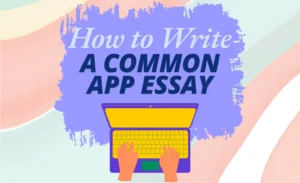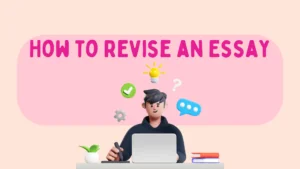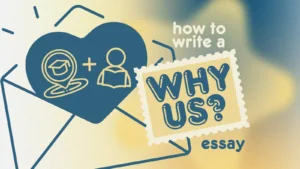Finishing a research paper can feel like the final boss in a video game—after all the hard work, you’re almost at the finish line, but there’s one last challenge to tackle. The conclusion part of your research paper is as important as its introduction and practical part. It shouldn’t just simply summarize everything but leave a lasting impression that you’ve made an important contribution to the research field. There are a few things you should know to have that kind of power.

✅ AI Essay Writer ✅ AI Detector ✅ Plagchecker ✅ Paraphraser
✅ Summarizer ✅ Citation Generator
Structuring a Research Paper Conclusion
A good research paper conclusion ties everything together and leaves a lasting impression on the reader. It’s your chance to highlight the significance of your findings. So, what should the conclusion of a research paper contain?
Start by briefly restating the main points of your research, ensuring you remind the reader of your key arguments. Then, discuss the broader implications of your findings and why they matter. Addressing any opposing viewpoints can strengthen your conclusion, showing you’ve considered multiple perspectives. Finally, suggest areas for future research or actions that could be taken based on your results.
Example:
If your research is about the impact of social media on student productivity, you might conclude by summarizing the key findings, discussing their significance in the context of digital learning, addressing potential criticisms, and suggesting further studies on specific social media platforms.
Types of Conclusions for Research Paper
The are various ways how you can end your paper. The type of conclusion you choose can make a big difference. The most common type is the summarizing conclusion. It’s like giving a quick recap of your main points, restating your research question, and reminding everyone why your findings matter. It’s straightforward and works well for most topics.
Then there’s the editorial conclusion, which is a bit more personal. Here, you can share your own thoughts and opinions based on your research, maybe even throw in some recommendations or a call to action. It’s perfect if your paper is pushing a particular viewpoint.

Lastly, the externalizing conclusion is all about thinking big. This type of conclusion suggests future research directions or talks about the bigger picture. It’s great for more theoretical or exploratory studies because it introduces new ideas that go beyond what you covered in your paper.
Each type of conclusion helps tie everything together and gives your readers something to think about, making your research feel complete and impactful.
Easy Guide on How to Write a Conclusion for a Research Paper
To create astrong conclusion for your research paper, start by restating your research topic to remind your readers what your paper is about. If your paper is about the impact of social media on mental health, you might begin with,
“The influence of social media on mental health has been a growing concern.”
Next, restate your thesis in a fresh way to reinforce your main argument. You could say,
“Our findings highlight the significant correlation between excessive social media use and increased anxiety among teenagers.”
Then, summarize the main points of your research but don’t introduce new information. This could involve briefly mentioning your key findings, like
“The study showed that frequent social media use leads to a higher risk of anxiety, especially among adolescents.”
Connect these points to the bigger picture by discussing the significance of your findings. Explain why your research matters, such as
“Understanding this link is crucial for developing effective mental health interventions for young people.”
Consider suggesting areas for future research to show that your work opens the door for further exploration. For instance,
“Future studies could explore how different types of social media platforms impact mental health differently.”
Finally, wrap up with a closing thought that leaves a lasting impression, like a call to action or a thought-provoking statement. You might end with,
“Addressing the mental health effects of social media is vital for fostering healthier online environments for our youth.”
How to End a Research Paper: What to Avoid
Ending your research paper on the right note is important, so there are some pitfalls to avoid to make sure your conclusion is effective.
- First, keep it short and sweet—your conclusion should be concise, typically no more than one or two paragraphs.
- Avoid stating the obvious with phrases like “in conclusion” or “in summary,” as these can come off as redundant. Instead, let the context signal that you are wrapping up.
- Refrain from introducing new information; this is the time to restate your main points and provide closure, not to bring up fresh ideas.
- Make sure to briefly summarize your paper and discuss whether it answers your research questions, but don’t dive into details about your methodology or results—that belongs in the body of your paper.
- Be transparent about any limitations of your study. Mentioning issues like sample size or study duration can actually strengthen your paper by showing that you understand its scope.
- Don’t apologize for these limitations; instead, frame them as opportunities for future research.
- Lastly, stay analytical rather than emotional in your conclusion, and avoid rambling. Your goal is to highlight the significance of your findings and suggest the broader implications, leaving your readers with a clear understanding of the importance of your research.

Examples of How to Conclude a Research Paper
To give you a proper research paper conclusion example, we decided to write a couple of pieces ourselves. So, before starting your work, you can check out the samples below and make sure you follow all of the guidelines.
FAQ
Follow us on Reddit for more insights and updates.





Comments (0)
Welcome to A*Help comments!
We’re all about debate and discussion at A*Help.
We value the diverse opinions of users, so you may find points of view that you don’t agree with. And that’s cool. However, there are certain things we’re not OK with: attempts to manipulate our data in any way, for example, or the posting of discriminative, offensive, hateful, or disparaging material.